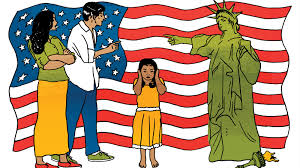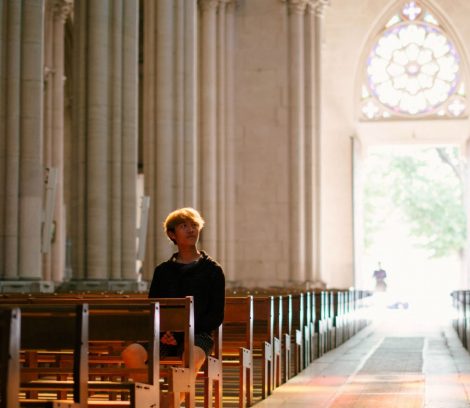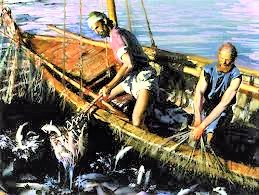
Voices Crying in the Wilderness
My friend, Lori Chesser, an immigration lawyer, writes about the complexities of the immigration system (which many say is no system at all) in a recent issue of Living City, the magazine of the Focolare Movement. For those unfamiliar with Focolare, its three main goals, according to its web site, are “the art of loving, community and dialogue.” Lori is a long-time member.
She asks a series of questions at the end of her article. The final question is, “Does faith inform our immigration policy?” And, “should it?”
I’ve written many times in these blogs about church-going Christians who attempt to live as if they had no faith, hiding it from the world by silence and by their action or lack of action. They live as if God did not exist, and for them, God might as well not. Their attitudes toward public issues are formed more by their “tribe,” their political party or their “upbringing” than by their faith.
Incongruity
And I believe this incongruity between professed beliefs and actual lives extends to people who have given up on God and/or religion but are still searching for God.
For all of us searching for God in the Christian tradition, it can’t be “us or them,” whether the “them” are non-believers or people of other faiths, other nations or other cultures.
In John’s gospel, Jesus says he has “other sheep, not of this fold.” Like most Scripture passages, it’s open to interpretation, but the “other sheep” probably refers to “the Gentiles,” that is, everybody not a Jew. That would mean that God is open to everybody without limit.
And the Acts of the Apostles has a story about a meeting between the apostle Peter and a Roman military officer named Cornelius, a non-Jew. Many Jews of Jesus’ time believed that God’s love was limited to Jews, but after meeting Cornelius, Peter said, “I now realize how true it is that God does not show favoritism but accepts from every nation the one who fears him and does what is right.”
For me, the message for people searching for God is that God’s love extends to everybody, and so must ours.
Led by Faith?
So back to Lori Chesser’s questions about immigration. Should we be led by our faith or our desire to find God when determining our attitude toward immigrants and immigration? If not, what good is our faith or our search for God?
Personally, I believe my faith compels me to advocate for the fair and compassionate treatment of immigrants, all of whom are God’s beloved children. That doesn’t mean I, or like-minded people, want open borders. That’s a political question. The treatment of human beings is not.
Practically, that means I support efforts to redesign our immigration policy to allow many more immigrants and refugees – including people from poor countries and people fleeing violence – to enter the U.S. Currently, people from those countries must wait years to enter the country legally because the quotas for each country are impossibly low.
(When most of our European ancestors entered the U.S., by the way, there was no quota system, limiting numbers from various countries. The quota system was established in 1924.)
Treated with Respect
It also means that I abhor the mistreatment of people trying to enter the country, legally or illegally, and have let my opinion be known. They should all be treated with respect, no matter their economic situation, their skill levels or the ultimate determination about their immigration status.
No one has been more vocal about the need for just and compassionate treatment of immigrants than Pope Francis.
We are called to serve “those who are most vulnerable and marginalized, particularly those forced to emigrate, who at the present time represent a voice crying in the wilderness of our humanity,” he said in his last Christmas message. “(The Church) is thus called to remind everyone that it is not simply a matter of social or migration questions but of human persons, of our brothers and sisters who today are a symbol of all those discarded by the globalized society.”




